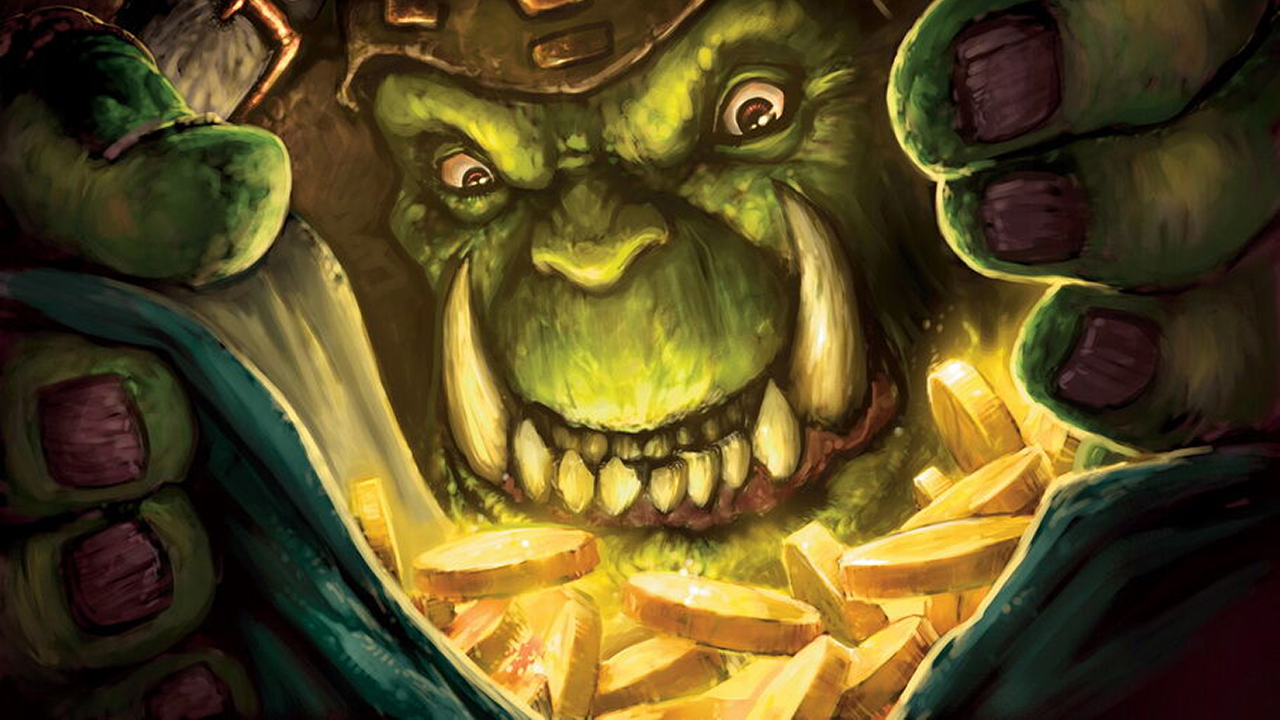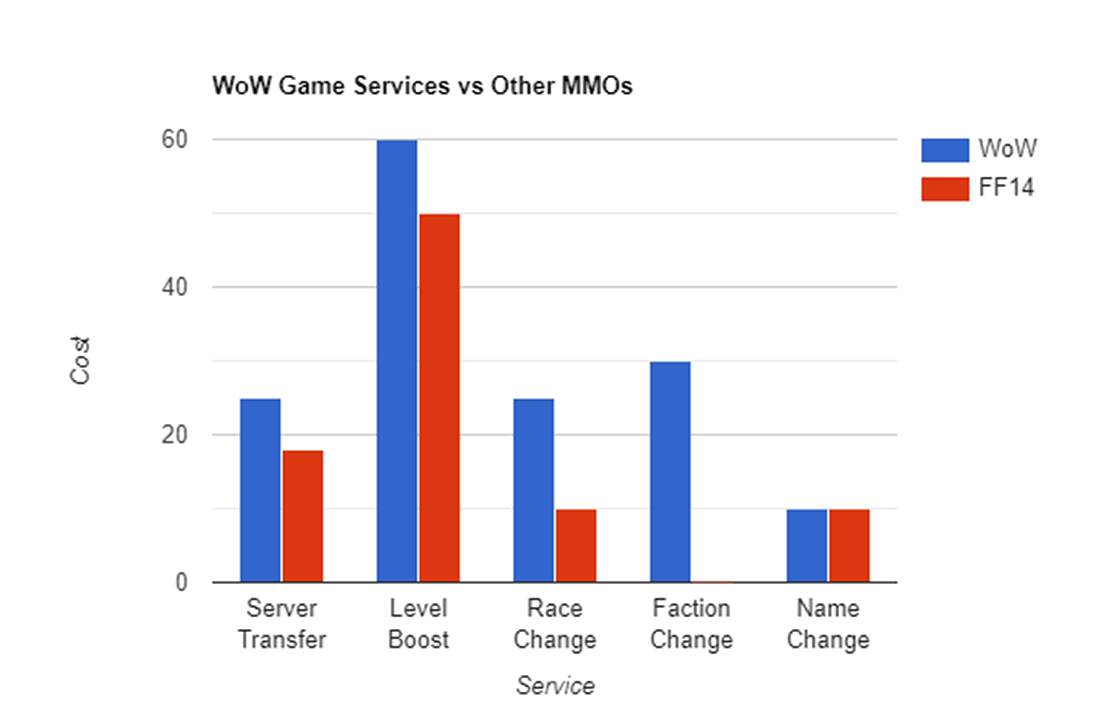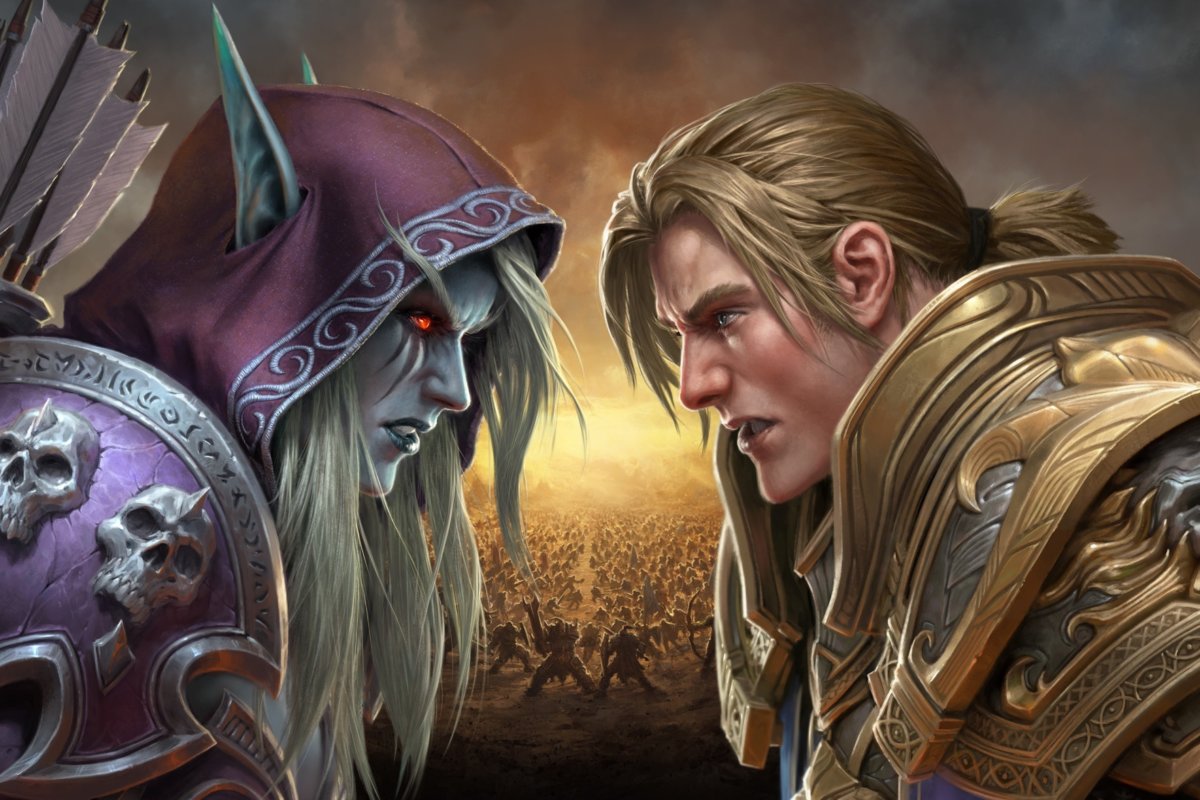World of Warcraft's $25 server transfer fee is infuriatingly overpriced
Faction imbalances and outdated server infrastructure make the cost to change servers a hard pill to swallow.

In a genre that has largely gone free-to-play, World of Warcraft is easily the most expensive MMO. Though it comes with a free trial (which has its own problems), you'll need to fork over $40 for the latest expansion pack and sign up for a $15 monthly subscription to really experience Azeroth. I've happily stomached that cost for 17 years because WoW is a genre-defining titan that continues to innovate and reinvent itself in exciting ways. But every time I've had to shell out more money to pay for one of WoW's different game services like a server transfer, it feels like I'm being taken advantage of. WoW's game services are an insanely high toll you sometimes have to pay just to enjoy the game as Blizzard intended.
Before we get into why WoW's game services are such a negative experience, let's break down exactly what they are and how much they cost:
- Boosting a character to level 50 costs $60.
- Changing a character's race costs $25.
- Changing a character's faction costs $30.
- Transferring a character to a different server costs $25.
- Changing a character's name costs $10.
Here's how those fees compare to Final Fantasy 14, which is another MMO very similar to WoW in terms of structure and offered account services.

For FF14's level boost, the total is calculated by adding a class level boost ($25) and the Tales of Adventure ($25), which unlocks the story campaign of the latest expansion. There are no factions in FF14, either.
So it's clear that WoW's game services cost significantly more than its closest competitor. But what really frustrates me is how often I've felt forced to buy a WoW service in order to keep enjoying the game. Server transfers feel like an unnecessary penalty to fix problems that have nothing to do with me as a player and everything to do with some of WoW's most outdated features.
WoW has a population balance problem
Blizzard should be working to eliminate every barrier that exists between players having fun together, not monetizing them.
In World of Warcraft players are divided between two warring factions: Horde and Alliance. Though recent expansions have unified the two factions somewhat—at least in terms of narrative—this means that WoW is largely two separate games: Horde players have access to entirely different quests and areas than Alliance players. Your faction is more than a loose grouping of different fantasy races. The choice matters.
Being on one faction means you can't cooperatively play with those from the other. At best players can co-exist in neutral towns, but there is no way to form parties or groups across factions. Even if you could, the game garbles the text chat of opposing factions to simulate the language barrier between them. There's no way to communicate with what is supposed to be my mortal enemies.
The biggest gaming news, reviews and hardware deals
Keep up to date with the most important stories and the best deals, as picked by the PC Gamer team.
This faction system is one of WoW's defining features and is quickly becoming its greatest weakness. Having a huge group of players to fight against is awesome, but it effectively cuts WoW's population in half, meaning less people to team up with. Because WoW players are divided up between hundreds of different servers, some servers have become more popular for one faction more than the other. Wildly more popular, in many cases. Wowprogress estimates that seven of the top ten servers with hardcore raiding guilds disproportionally favor the Horde. Illidan-US, one of WoW's original servers, has an estimated 22,000 active Horde raiders compared to just 148 active Alliance raiders. That means if you want to play WoW's more difficult endgame content, you're likely going to need to start over (or pay) to become a Horde character.
During BlizzCon 2021, game director Ion Hazzikostas admitted that faction balance was one of the biggest issues plaguing WoW today and that there were no easy answers. The faction imbalance not only makes the game less fun for those in the minority on a server, but it also often divides friend groups unnecessarily unless everyone agrees to be on the same side.
In recent years, Blizzard has merged servers and even implemented complex technology to try and solve the problem. Connected Realms, for example, link two or more servers together to make them act as if they were one big server. If I'm an Alliance player on Illidan-US and I go out exploring, special cross-realm zones will also ensure I bump into other Alliance characters. It helps, but they're a band-aid.
Despite a good many US servers being connected to others, there's just as many that aren't connected. And if you're on one of those non-connected servers, the faction imbalance can absolutely sting you.
Back when Shadowlands first launched, I decided to start over with a new character. Almost all of my WoW characters are Alliance, so this time I thought it'd be fun to play as the Horde instead. But it wasn't until I spent nearly a hundred hours getting to level 60 and playing the endgame that I started to realize something was wrong. No matter where I went in the open world I felt like I was swarmed by enemy Alliance players. I eventually had to turn off PVP altogether because I would routinely get ganked. There were also fewer Horde players to group up with in certain world quests, and when I got to a high enough level where I wanted to start running Mythic+ dungeons and raids, it felt like there weren't very many open parties. Even finding a decent guild was slim pickings. Having played Alliance characters on the same server, the difference was profound.
I finally realized why things felt so weird when I looked up the estimated population balance for my server, Lightbringer-US. Alliance characters outnumbered Horde characters on Lightbringer-US by an estimated factor of 20. Horde wasn't just in the minority, we were practically non-existent. What's worse, Lightbringer isn't connected to any other server according to WoW's support page.

What frustrates me is that WoW's hundreds of servers are not equal, but none of this is communicated to the player through World of Warcraft directly. When logging in, servers are only listed by approximate population but don't provide any more granular detail about the culture of that server or what timezone it's based in (beyond broad geographic descriptors like "European"). All of this incredibly useful information has to be discovered using third-party websites. It makes choosing a server an extremely risky decision that practically requires doing a good amount of research. Good luck finding that one out, new players.
What's unbelievably shitty, though, is that once you're in that position you only have three options: Pay up, start a new character from scratch and lose all that time and effort, or grit your teeth and continue playing. If I wanted to stay on Lightbringer-US, I could pay $30 for a faction change but I'd have to give up my badass Blood Elf appearance and change to an Alliance race. Or I could pay $25 and transfer to a different server with a thriving community of Horde players. So that's what I did.
Why am I having to bear the hidden cost of World of Warcraft's aging server infrastructure and faction design? This is Blizzard's problem, not mine.
This is now the second time that I've had to pay for a server transfer. The first time was years ago when I originally transferred to Lightbringer-US so I could link up with a group of friends in a guild. Talk to any WoW veteran and chances are they've experienced a similar situation. As a player, it pisses me off to feel like I'm being taxed just because I want to enjoy World of Warcraft the way it was intended—either directly with friends or alongside a healthy community. Blizzard should be working to eliminate every barrier that exists between players having fun together, not monetizing them.
I get that these services cost money to discourage players from taking advantage of them, which could theoretically result in a bad experience for many players. But making the barrier such an exorbitant fee—over half of the price of the new expansion in some cases—feels scummy, especially in the middle of a pandemic when people are already hurting financially. Why am I having to bear the hidden cost of World of Warcraft's aging server infrastructure and faction design? This is Blizzard's problem, not mine.
World of Warcraft has made some great strides over the past few years to become more accessible to all players. Its new starting zone is a much better introduction for newbies, leveling up takes a fraction of the time it used to, and Blizzard even eliminated the fee to change your character's gender and made it something you can do as much as you want, at any time. But there's still so much else that makes World of Warcraft frustrating. It's high time for Blizzard to rethink its approach to these services and the kind of message they send to players who have already invested so much time and money into this game.
With over 7 years of experience with in-depth feature reporting, Steven's mission is to chronicle the fascinating ways that games intersect our lives. Whether it's colossal in-game wars in an MMO, or long-haul truckers who turn to games to protect them from the loneliness of the open road, Steven tries to unearth PC gaming's greatest untold stories. His love of PC gaming started extremely early. Without money to spend, he spent an entire day watching the progress bar on a 25mb download of the Heroes of Might and Magic 2 demo that he then played for at least a hundred hours. It was a good demo.


